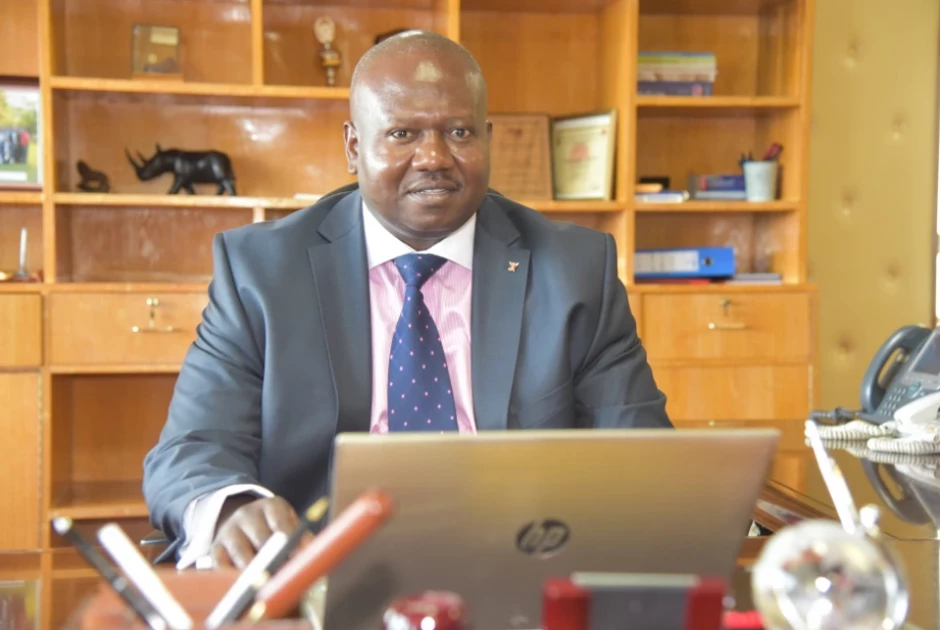Kenya raises concern over rise in synthetic drugs, shifting trafficking trends

File image of NACADA CEO Dr. Anthony Omerikwa in his office.

Audio By Vocalize
Kenya has expressed concern over the growing threat of synthetic drugs and shifting global trafficking patterns, warning that new potent substances are “causing havoc among young people” and fueling a complex public health and security challenge.
In his address at the 32nd
Meeting of Heads of National Drug Law Enforcement Agencies (HONLEA) in Austria,
Dr. Anthony Omerikwa, Chief Executive Officer of the National Authority for the
Campaign Against Alcohol and Drug Abuse (NACADA), said the world is witnessing
a steady rise in the abuse of illicit drugs and a marked shift from traditional
substances to synthetic ones.
“Current trends indicate a
global rise in the abuse of illicit drugs,” Dr. Omerikwa noted. “There is a
steady shift from traditional substances to synthetic drugs, thereby increasing
the number of New Psychoactive Substances with their adverse social and health
consequences.”
He cautioned that Kenya’s
strategic location and connectivity make it a target for drug trafficking
networks, adding that African countries are increasingly becoming consumption
markets, not just transit routes. “Some African countries are no longer just
transit routes,” he said. “We are witnessing the increasing availability of
drugs for local use.”
To address this growing threat, Dr. Omerikwa said Kenya is adopting a multi-pronged strategy that combines intelligence-led enforcement with a health-centered approach.
“Kenya is
addressing drug-related crime through Alternatives to Incarceration,” he
explained, highlighting policies that divert persons using drugs toward
treatment and rehabilitation instead of imprisonment. This, he said, reflects
Kenya’s broader commitment to inclusive development under the Sustainable
Development Goals.
The NACADA CEO also
underscored the role of data in combating drug abuse, citing the establishment
of a National Drug Observatory to monitor emerging trends and guide
interventions. He called for stronger global cooperation to tackle evolving
threats such as trafficking through fast parcels and online platforms, and the
growing commercialization of controlled substances like cannabis for
non-medical use.
Dr. Omerikwa urged
international delegates to prioritize the protection of youth and to end
discrimination against drug users who require treatment rather than punishment.
The HONLEA meeting, convened by the United Nations Office on Drugs and Crime (UNODC), brings together top drug enforcement officials from across the globe to coordinate strategies and share intelligence in tackling the world drug problem. This year’s session in Vienna focused on the rise of synthetic opioids, emerging trafficking routes, and innovative approaches to enforcement and public health.


Leave a Comment